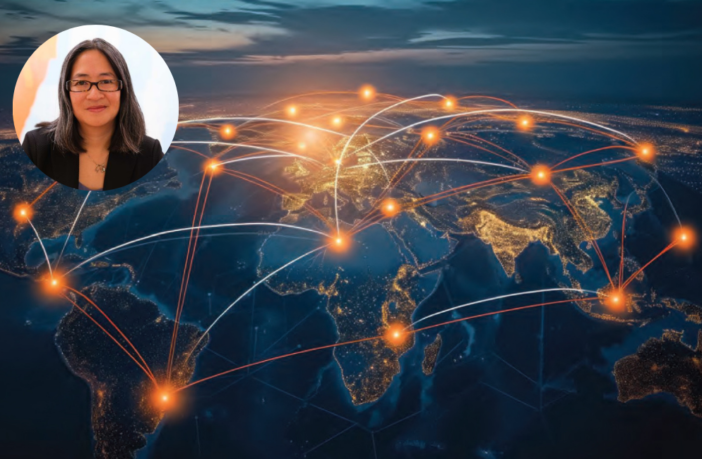By Wendy Gonzalez
In 2023, the U.S. had almost $61 billion in its budget to spend on foreign aid. About half of that went to 10 countries. Unsurprisingly, the top country was Ukraine, but the other nine are in Africa and the Middle East. In fact, estimates show that Africa has received over $1 trillion in development assistance since 1990—but some of the world’s poorest countries are still on the continent. This suggests that aid alone cannot bring new opportunities to these underserved or underrepresented communities. Expanding opportunities means expanding our methods.
This does not mean that aid and charity are not themselves critical. The work of the United States Agency for International Development (USAID), the UN and other public and private organizations provides more stability to build a foundation for opportunities to come.
For example, let’s look at Yemen. It was one of the United States’ top 10 aid recipients last year, and it is one of the poorest countries in the world (even while bordering Saudi Arabia—a top 20 global economy).
This is due in large part to the ongoing conflict that began in 2014 and is not officially over despite a lull in major operations. Its humanitarian crisis cannot be solved by businesses setting up operations in the country; what they need is essentially triage. More than half of Yemen’s total population of 18.2 million people, including 9.8 million children, are in need of what UNICEF calls “lifesaving support”—providing clean drinking water, fighting malnutrition and more.
Right now, “expanding opportunity” in Yemen doesn’t mean beginning new economic initiatives; it means rebuilding the foundation on which opportunities are made and creating an environment in which children can grow up, thrive, and perhaps create their own opportunities.
However, international nonprofits aren’t the only ones capable of building or rebuilding these foundations. Looking back at Africa, this belief is taking root. Kenyan president William Ruto sums it up: “We as Africa have come to the world, not to ask for alms, charity or handouts, but to work with the rest of the global community.” Africa No Filter’s 2022 report bears this out: 62% of the 18–35-year-olds surveyed believed “in the power of African innovation and preferred using local innovations.”
In that same report, just over half mentioned infrastructure as a key roadblock to innovation (53%), but that governments supported innovators (59%). Governments are proving that they understand the power of digital innovation to supercharge economies—no matter how wealthy their countries are or where they are on the planet. Even Saudi Arabia, a main economic player in the Middle East, has an economic vision plan centering on the year 2030, as does Kenya itself. Madagascar is working on a 2028 timetable. Singapore (the fourth-richest country on Earth) has a 2030 plan, too.
These plans and the subsequent policies signal a country’s willingness to work with businesses whose operations line up with the overall economic vision. For example, my company, Sama, has hosted representatives from the Kenyan and Ethiopian governments at our Nairobi offices recently, due to our emphasis on providing employment and entry into the digital economy.
If a company is willing to be a good neighbor and follow local regulations and pay taxes, they will find many suitors around the world. Obviously, this brings significant economic benefits. On top of that, though, bringing work to different places around the world expands who gets a seat at the table in the development of powerful tools like AI (as in Sama’s case)—a net social good as well as a financial one.
That brings us to work itself and the companies who provide it. Sama was founded on the principle that “talent is equally distributed, but opportunity is not.” Put into numbers, 2 billion workers (approximately 61% of all workers globally) are employed informally. By informal employment, I mean work that doesn’t come with a regular paycheck or benefits such as paid leave. This kind of work leaves people vulnerable to income shocks, extended illness or unexpected events.
In the kinds of developing and emerging countries we talk about when we say we want to expand economic opportunities, that number climbs to 70%. If we look at informal employment rates in Africa alone, it’s 86%.
A number of studies have shown that formal employment is a critical factor for financial stability. Regular paychecks also have domino effects: people can spend more money in their communities, on health care, on their children and on other ways to improve their lives. Steady income, in short, lifts up more than just the person earning the wage; it strengthens local economies, which then strengthens a national economy.
At Sama, we’ve seen this in practice. By paying living wages, providing benefits and offering job training all in formal employment roles, we’ve helped 68,000 people in East Africa out of poverty since 2008.
The past 30+ years have shown that international aid, while vital, isn’t sufficient enough to truly expand opportunities or solve global income inequality. If aid alone could “catch countries up” economically, we wouldn’t need to have this conversation.
Instead, if we truly mean to bring more economic opportunity to the countries or regions that need it most, we must embrace aid as one tool in a much bigger toolbox. Working together in this digital world, we have the power to bring opportunities to more parts of the world than we could before. It’s time for governments, organizations and companies to work together to do it.
Wendy Gonzalez is the CEO of Sama, which is a leader in providing high-quality training data to power AI technology and is used by leading technology companies such as Walmart, Google, NVIDIA, GM and Getty. Under Gonzalez’ leadership, Sama has placed on the Inc. 5000 list as one of America’s fastest-growing private companies for the past four years. As CEO, she is one of few female leaders within the male-dominated AI industry and has been recognized by the Globee Awards for Women in Business, the TITAN Awards for Women in Business and the Stevie Awards for Women in Business.
Read more articles for the STEM Community here.



